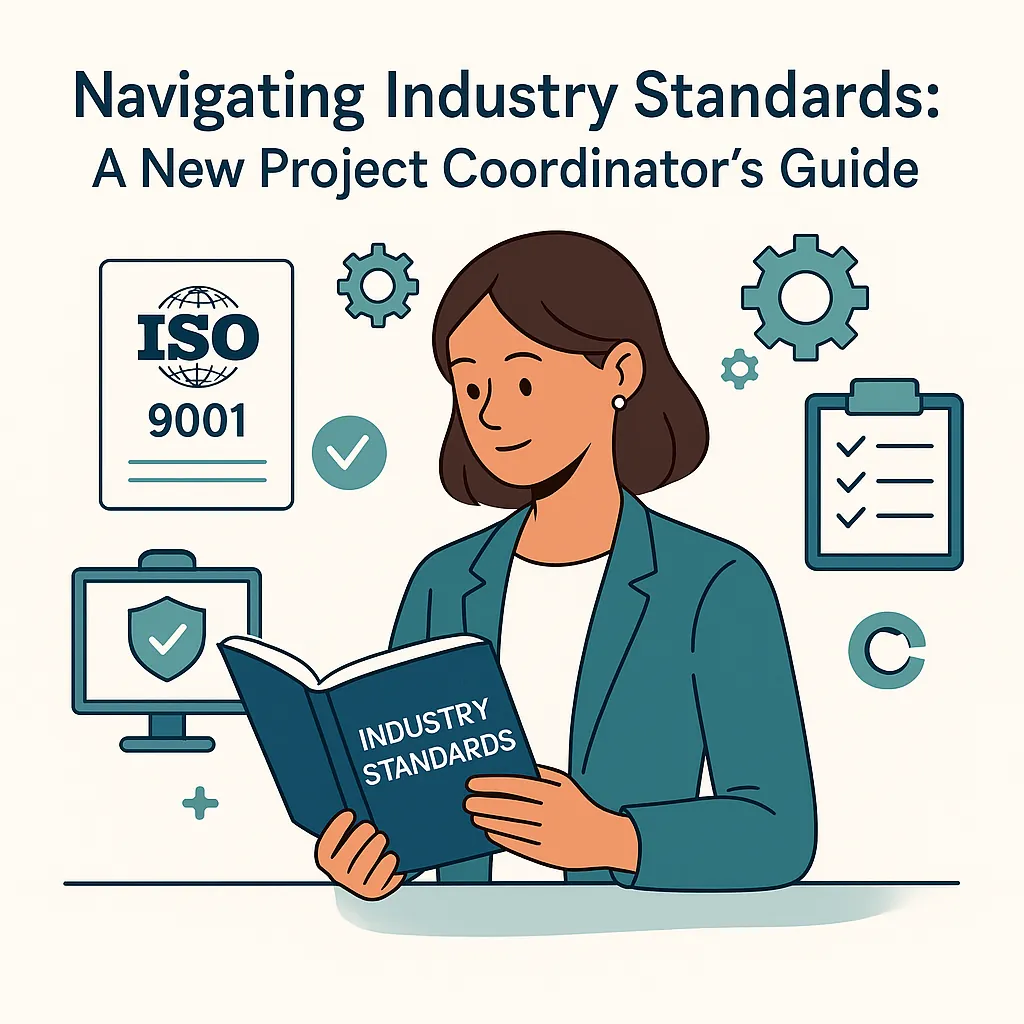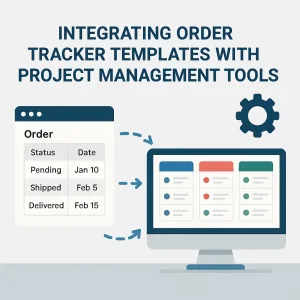Introduction to Project Coordination
The role of a project coordinator is pivotal, especially for those looking to embark on a career in this dynamic field. Understanding the foundational aspects of project coordination and the industry standards that govern it is essential for anyone aiming to succeed in this position, particularly for entry-level project managers.
Definition of a Project Coordinator
A project coordinator is responsible for supporting the project manager in the planning, execution, and completion of projects. This role involves a variety of tasks, including:
- Communication: Acting as a liaison between team members, stakeholders, and clients to ensure everyone is aligned with project goals and timelines.
- Documentation: Maintaining project documentation, including schedules, budgets, and reports, which are crucial for tracking progress and ensuring accountability.
- Coordination: Assisting in the coordination of project activities, resources, and timelines to facilitate smooth project execution.
This position serves as a stepping stone for many aspiring project managers, providing valuable insights into the project management process and the skills required to lead projects effectively.
Overview of the Project Management Industry
The project management industry is vast and encompasses various sectors, including construction, IT, healthcare, and more. It is characterized by:
- Diverse Methodologies: Project management employs various methodologies such as Agile, Waterfall, and Scrum, each with its own set of practices and standards.
- Growing Demand: As organizations increasingly rely on project-based work to achieve their goals, the demand for skilled project coordinators and managers continues to rise.
- Professional Development: The industry offers numerous opportunities for professional growth through certifications, training programs, and networking events.
Understanding the landscape of the project management industry is crucial for new project coordinators, as it helps them navigate their career paths and identify areas for specialization.
Importance of Industry Standards for Project Coordinators
Familiarity with industry standards is vital for project coordinators for several reasons:
- Quality Assurance: Adhering to established standards ensures that projects meet quality expectations and comply with regulatory requirements.
- Efficiency: Knowledge of best practices and standards can enhance a project coordinator’s ability to streamline processes, manage resources effectively, and mitigate risks.
- Professional Credibility: Understanding and implementing industry standards can bolster a project coordinator’s credibility among peers and stakeholders, paving the way for career advancement.
Key Industry Standards for Project Coordinators
As an aspiring project coordinator, understanding the key industry standards is crucial for effectively managing projects and ensuring their success. Here are some essential standards and methodologies that every project coordinator should be familiar with:
- Project Management Institute (PMI) Standards: The PMI is a leading organization in project management, providing a framework of best practices and guidelines. Familiarity with the PMI’s Project Management Body of Knowledge (PMBOK) is essential, as it outlines the processes, tools, and techniques that are widely accepted in the industry. This knowledge helps project coordinators align their work with recognized standards, enhancing their credibility and effectiveness in managing projects [1].
- Agile Methodologies and Frameworks: Agile project management is increasingly popular due to its flexibility and responsiveness to change. Understanding frameworks such as Scrum and Kanban is vital for project coordinators, especially in environments where requirements evolve rapidly. Scrum focuses on iterative progress through sprints, while Kanban emphasizes continuous delivery and visualizing work in progress. Mastery of these methodologies allows project coordinators to facilitate collaboration and adapt to changing project needs [2].
- Waterfall and Hybrid Project Management Approaches: The Waterfall model is a traditional project management approach characterized by a linear and sequential design process. It is essential for project coordinators to understand when to apply this method, particularly in projects with well-defined requirements. Additionally, hybrid approaches that combine elements of both Agile and Waterfall can be beneficial in complex projects, allowing for flexibility while maintaining structure. Knowledge of these methodologies enables project coordinators to choose the most effective approach for their specific project context [3].
- Quality Assurance and Control Standards: Ensuring the quality of project deliverables is a critical responsibility for project coordinators. Familiarity with quality assurance standards such as ISO (International Organization for Standardization) and methodologies like Six Sigma can significantly enhance a project coordinator’s ability to implement quality control measures. ISO standards provide guidelines for maintaining quality across various processes, while Six Sigma focuses on reducing defects and improving overall project performance. Understanding these standards helps project coordinators ensure that projects meet stakeholder expectations and regulatory requirements [4].
By mastering these industry standards, new project coordinators can build a solid foundation for their careers, ensuring they are well-equipped to manage projects effectively and contribute to their teams’ success.
Essential Skills for a Successful Project Coordinator
Becoming a project coordinator, especially without prior experience, can be a challenging yet rewarding journey. Understanding the essential skills required for this role is crucial for entry-level project managers aiming to thrive in the industry. Here are the key skills that every aspiring project coordinator should focus on:
- Communication Skills: Effective communication is paramount in project coordination. Project coordinators must possess strong verbal and written communication skills to convey messages clearly to team members, stakeholders, and clients. This includes creating agendas for meetings, guiding discussions, and ensuring that everyone is on the same page throughout the project lifecycle [4][5][8].
- Organizational and Time Management Skills: A project coordinator is responsible for planning and organizing various aspects of a project. This requires exceptional organizational skills to manage multiple tasks and deadlines effectively. Time management is equally important, as coordinators must prioritize tasks and allocate resources efficiently to ensure project milestones are met [10][15].
- Problem-Solving and Critical Thinking Abilities: Projects often encounter unexpected challenges that require quick thinking and effective problem-solving skills. A successful project coordinator must be able to analyze situations critically, identify potential issues, and develop practical solutions to keep the project on track [6][12].
- Team Collaboration and Leadership Skills: Collaboration is at the heart of project management. Project coordinators must work closely with team members and foster a collaborative environment. Leadership skills are also essential, as coordinators often need to motivate and guide their teams, ensuring that everyone contributes effectively to the project’s success [7][15].
By honing these essential skills, entry-level project managers can position themselves for success as project coordinators, even without prior experience. Emphasizing communication, organization, problem-solving, and teamwork will not only enhance their capabilities but also increase their value in the competitive field of project management.
Getting Started Without Experience
Entering the field of project coordination can seem daunting, especially for those without prior experience. However, there are several actionable steps that aspiring project coordinators can take to build a foundation in this dynamic industry. Here are key strategies to help you navigate your entry into project management:
- Leverage Transferable Skills: Many skills acquired in previous jobs or educational experiences can be applicable to project coordination. Skills such as communication, organization, problem-solving, and teamwork are highly valued in project management. Reflect on your past roles and identify how these skills can translate into the project coordination context. For instance, if you have experience in customer service, your ability to manage client relationships and resolve issues can be a significant asset in coordinating projects [1][2].
- Seek Internships or Volunteer Opportunities: Gaining practical experience through internships or volunteer positions can provide invaluable insights into the project management process. Look for opportunities within organizations that allow you to assist with project tasks, even if they are on a small scale. This hands-on experience not only enhances your resume but also helps you understand the day-to-day responsibilities of a project coordinator [3][4].
- Network with Professionals in the Field: Building a professional network is crucial for anyone entering a new industry. Attend industry events, join project management groups on social media, and connect with professionals on platforms like LinkedIn. Engaging with experienced project managers can provide mentorship opportunities, insights into industry standards, and potential job leads. Networking can often open doors that formal applications cannot [5][6].
- Pursue Relevant Certifications: Earning certifications can significantly boost your credibility and knowledge in project management. Consider starting with the Certified Associate in Project Management (CAPM) or the Agile Certified Practitioner (PMI-ACP) certifications. These credentials demonstrate your commitment to the field and your understanding of essential project management principles. They can also make you a more attractive candidate to potential employers [7][8].
By following these steps, entry-level individuals can effectively position themselves for a successful career as a project coordinator, even without prior experience. Emphasizing transferable skills, gaining practical experience, networking, and pursuing certifications are all critical components of this journey.
Learning and Adapting to Industry Standards
As a new project coordinator, understanding and adapting to industry standards is crucial for your success. Here are some effective strategies to help you continuously learn and stay updated in the field of project management, even if you are starting with no prior experience.
1. Utilizing Online Courses and Resources
Online learning platforms such as Coursera and LinkedIn Learning offer a wealth of courses specifically designed for aspiring project coordinators. These courses cover essential project management principles, tools, and methodologies, allowing you to build a solid foundation. Engaging with these resources not only enhances your knowledge but also demonstrates your commitment to professional development, which can be appealing to potential employers.
2. Joining Professional Organizations and Attending Workshops
Becoming a member of professional organizations, such as the Project Management Institute (PMI), can provide you with access to valuable resources, networking opportunities, and industry insights. Attending workshops and seminars hosted by these organizations allows you to learn from experienced professionals and gain practical knowledge that can be applied in real-world scenarios. These interactions can also help you build a network of contacts that may lead to job opportunities.
3. Reading Industry Publications and Following Thought Leaders
Staying informed about the latest trends and best practices in project management is essential. Subscribing to industry publications, such as the Project Management Journal or PM Network, can keep you updated on new methodologies and case studies. Additionally, following thought leaders in the field on social media platforms or through blogs can provide you with insights and tips that are relevant to your career development. Engaging with this content can also inspire you to think critically about your approach to project management.
4. Participating in Forums and Community Discussions
Engaging in online forums and community discussions, such as those found on platforms like Reddit or specialized project management forums, can be an excellent way to learn from others’ experiences. These platforms allow you to ask questions, share your thoughts, and receive feedback from seasoned professionals and peers alike. Participating in these discussions can enhance your understanding of industry standards and help you develop a more nuanced perspective on project management challenges.
By actively pursuing these strategies, you can effectively navigate the complexities of project management and position yourself as a knowledgeable and adaptable project coordinator. Continuous learning and engagement with industry standards will not only enhance your skills but also increase your confidence as you embark on your career in project management.
Conclusion: Building a Foundation for Future Success
In the journey to becoming a successful project coordinator, understanding industry standards is paramount. These standards not only provide a framework for effective project management but also ensure that projects are executed efficiently and meet stakeholder expectations. Here are the key takeaways to consider:
- Importance of Industry Standards: Familiarizing yourself with industry standards such as the Project Management Institute’s guidelines can significantly enhance your ability to manage projects effectively. These standards help in defining project goals, establishing timelines, evaluating risks, and identifying key deliverables, which are essential for any project coordinator [8][14].
- Investing in Learning and Skill Development: Continuous learning is crucial in the ever-evolving field of project management. Engaging in relevant education, such as obtaining certifications like the Certified Associate in Project Management (CAPM) or Project Management Professional (PMP), can provide you with the necessary knowledge and skills to excel [10][15]. Additionally, seeking mentorship and participating in workshops can further enhance your understanding and capabilities [2][14].
- Role of a Project Coordinator in Achieving Project Success: As a project coordinator, you play a vital role in the success of projects by facilitating communication among team members, stakeholders, and clients. Your ability to manage tasks, solve problems, and plan effectively will contribute to the overall success of the project [4][11]. Embracing this role with a commitment to learning and adapting will set a strong foundation for your career in project management.
In conclusion, as you embark on your journey as a project coordinator, remember that building a solid foundation through understanding industry standards, investing in your education, and recognizing the significance of your role will pave the way for future success in the project management field. Embrace the challenges and opportunities that come your way, and continue to develop your skills to thrive in this dynamic industry.
Find out more about Shaun Stoltz https://www.shaunstoltz.com/about/.
This post was written by an AI and reviewed/edited by a human.



